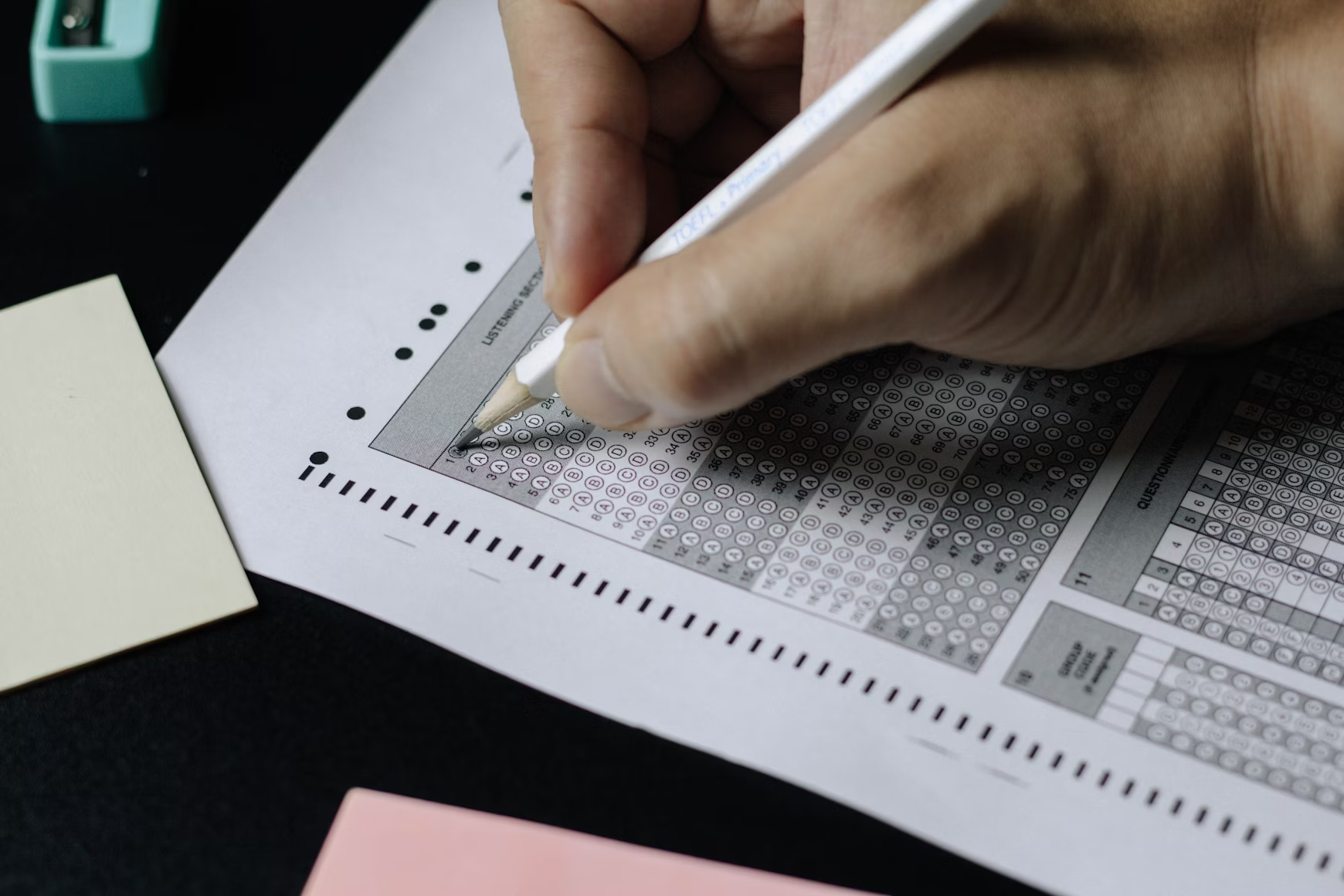Texas Gov. Greg Abbott signed House Bill 8 into law on Sept. 17, officially replacing the STAAR test with a “through-year” testing model aimed at reducing high-stakes pressure on students. The new legislation will eliminate the end-of-year STAAR exam and implement a new system of three shorter assessments given at the beginning, middle, and end of each school year, starting in the 2027-28 school year.
Under the legislation, students in grades 3 through 12 will take shorter tests in the fall, winter and spring, instead of one comprehensive exam in the spring. Only the final exam will count toward school accountability ratings, but the earlier assessments are designed to track academic growth and guide instruction throughout the year. Results must be delivered within 48 hours, to help both teachers and parents to quickly identify learning gaps.
“They’ll know where they stand, and they’ll know…immediately,” said Sen. Paul Bettencourt, who sponsored the bill in the Senate.
Proponents say this real-time feedback will help educators adjust lessons to student needs rather than “teach to the test” as in the current system.
House Bill 8 won approval in a summer special legislative session after two earlier attempts to overhaul the STAAR test fell short. The Texas House passed the measure on a party-line vote of 79-54 on Sept. 3. Abbott had urged lawmakers to eliminate the STAAR test in his special session agenda, and lawmakers reconciled differences from the regular session to get the bill to his desk.
“House Bill 8 ends the high-stakes and high-stress nature of one test, one day,” said Rep. Brad Buckley during House debate. “This is unprecedented oversight of the assessment and accountability system by this body.”
Supporters of the new system say it will move Texas beyond the much criticized one-day exam that has dominated classrooms for years. Lieutenant Gov. Dan Patrick said in an official statement that the passing of House Bill 8 was “a victory for Texas parents, educators, and most importantly, students.” Patrick went on to describe the STAAR test as “a cumbersome one-size-fits-all assessment that fails to actually measure student achievement.”
The three-test format will undergo a pilot rollout during the 2026-2027 school year and then launch statewide during the following school year. Bettencourt described this format as “transformative” during Senate deliberations, going on to say that it will transform Texas education.
However, critics argue that the change does not go far enough and could even increase testing burdens. Rep. Gina Hinojosa noted during the House debate that by testing every core subject three times a year, the state will administer far more exams overall which will be 51 state tests as opposed to the current 16 state-required tests. Education advocates and some school districts have echoed Hinojosa’s concern, claiming that the new plan simply repackages the STAAR test.
House Bill 8 makes several significant changes beyond the timing of tests. It bans district-run practice exams and excessive benchmark testing. A move that Texas Education Commissioner Mike Morath supported because weeks of class time were lost to STAAR prep that did not yield better results. The bill also tasks the Texas Education Agency with developing the new end-of-year test and must convene a panel of 40 teachers to review test questions for rigor and bias.
Graduation requirements will ease slightly as well, due to the fact that House Bill 8 eliminates the English II end-of-course exam – the first reduction in required high school tests since 2015. Students will still have to past four core end-of-course exams for English I, Algebra I, Biology, and U.S. History, to earn a diploma. Eighth grade social studies and the U.S. History high school exam were initially slated for removal, but were reinstated by the Senate in final negotiations.
Schools will continue to use A to F letter grades, but lawmakers intend to incorporate a new growth component once the through-year system is in place. House Bill 8 directs the Texas Education Agency to develop a metric tracking each student’s progress across the three tests, with the goal of factoring that growth into campus ratings. Education experts note that this approach is untested and that implementing it consistently will be a challenge.
In the meantime, only the end-of-year exam will directly count toward a school’s score. The law includes a fail-safe clause requiring the Texas Education Agency to report back to the Legislature in 2029 on how the new system impacts ratings.
Lawmakers also added guardrails to increase transparency such as the commissioner of education having to announce any changes to accountability rules by July 15 of every year. The performance benchmarks will be formally reviewed and refreshed every five years. These provisions follow recent disputes over shifting STAAR cutoffs and are meant to ensure schools are not blindsided by rating criteria.






